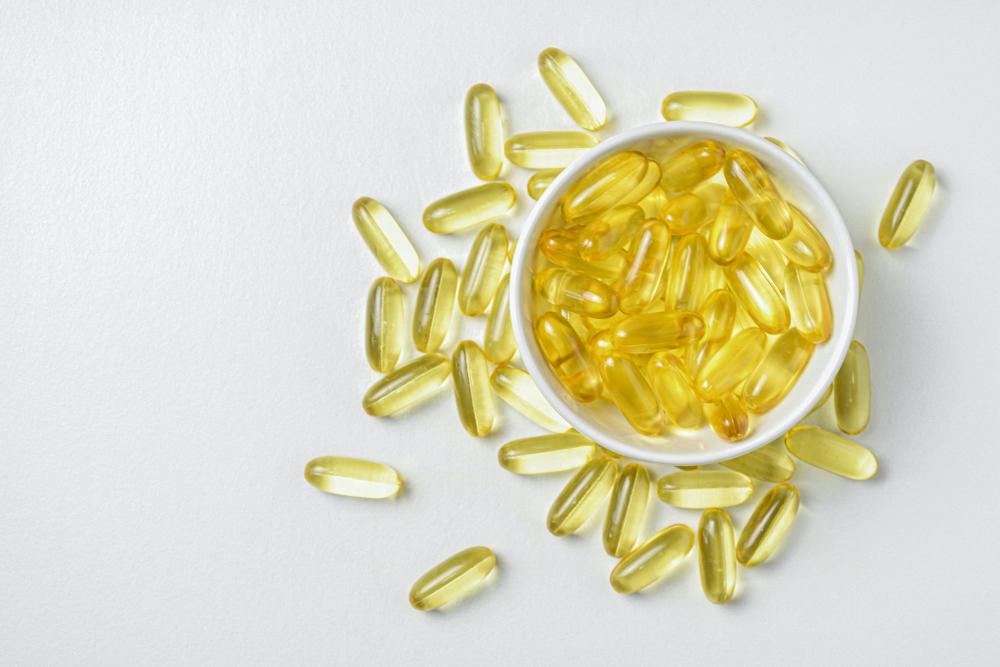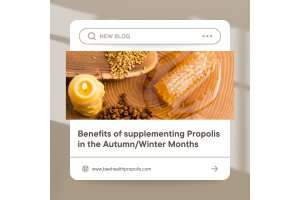Boost Your Immunity this Autumn with Bee Propolis

If you're looking for natural ways to support your immune system as autumn approaches, Bee propolis, a resinous mixture produced by bees, has been used in traditional practices for centuries.
Propolis is available in various forms, including as a liquid, capsules and tablets, lozenges, and throat sprays. Some people incorporate it into their daily routine by adding a few drops to tea or taking a capsule with breakfast.
Join us below to discover how to use bee propolis to boost your immunity this autumn.
What is bee propolis?
Bee propolis is a resinous substance with anti-bacterial and anti-fungal properties that honeybees make to seal their hives.
Bees make it by mixing saliva and beeswax with the exudate from tree buds, sap flows, and other botanical sources, including flowers.
Of course, beeswax is the main sealant for hives. Propolis is a filler that acts as a cement to eliminate potential infectious sources.
A quick history
Ancient Egyptians used propolis for mummification and healing, the Ancient Greeks named it "defender of the city" (in reference to the beehive) for its protective qualities, and Romans used it in warfare and skincare.
These ancient use cases didn’t go unnoticed through the years, and propolis was officially recognised as a drug in 17th-century London in the London Pharmacopoeia.
Perhaps the best-known modern use of it was by soldiers during World Wars I and II for tuberculosis treatment.
Immunity effects of bee propolis
Scientists are studying bee propolis because it contains natural compounds found in some plants, fruits, and modern medicines.
These include bioactive compounds, particularly flavonoids, which could contribute to maintaining a healthy immune system.
Researchers are particularly interested in how these ingredients might interact with the human body. Current studies are exploring propolis in relation to various aspects of human health, including the immune system.
Research suggests bee propolis could:
· Stimulate certain immune cells and processes
· Affect antibody production
· Modulate inflammatory responses
· Enhance resistance to some infections and diseases
It's important to note that this research is still in progress. There aren't any definitive conclusions about propolis's effects on human health.
How to take bee propolis
Propolis is easy to take orally with tablets, capsules, sprays, and lozenges, or you can add propolis liquid to your drinks and wet foods.
Propolis 1000mg tablets and capsules
1000mg propolis capsules and tablets provide the maximum recommended daily dose with no additives for a pure propolis experience.
Take one daily and complete the course over 90 days to see if you feel a difference – plenty of people feel healthier after regular consumption.
Propolis with vitamin C & zinc tablets
Combining propolis with vitamin C and zinc could offer synergistic benefits for immune support.
Vitamin C is a well-known antioxidant that is crucial in supporting immune function. It helps stimulate the production and function of white blood cells, key immune system components.
Zinc is an essential mineral that is important for the development and function of immune cells. It also has antioxidant properties and may help reduce inflammation.
Propolis lozenges
Propolis lozenges are portable and can be taken anywhere, making them ideal for busy lifestyles, on-the-go use, and travel.
As the lozenge dissolves slowly in your mouth, it allows for prolonged contact with the throat and oral tissues, which is beneficial for throat health and oral hygiene.
Start with one tablet a day and gradually increase if needed. Let the lozenge dissolve and resist crunching it so it stays in your mouth for longer.
Propolis sprays
Propolis throat sprays offer a targeted and convenient method for applying propolis directly to your throat area with a fine mist.
The small spray bottle is easy to carry and use throughout the day, making it ideal for singers, teachers, or anyone who frequently experiences throat strain. It could also help relieve sore throat symptoms from viral infections.
Propolis liquids
One simple way to use propolis liquid is by adding a few drops to your morning smoothie or juice. This can be an easy daily habit that may support your immune system.
For a warming option, try stirring a small amount into herbal or honey lemon tea. This can be especially soothing during cold and flu season.
You can also add propolis liquid to various foods. For a nutritious breakfast boost, consider drizzling it over yoghurt or oatmeal.
Propolis cream
Propolis cream helps soothe skin irritations and contains ingredients like glycerine and petrolatum that can help keep skin hydrated.
It's rich in bioflavonoids, antioxidants that may help protect skin from environmental stressors. Bee Health propolis contains no synthetic substances, so the bioflavonoids are naturally occurring and are safe to use on your skin.
Summing up
Propolis is a promising autumn immunity booster with well-known antimicrobial and anti-inflammatory properties. Taking it as a supplement alongside a healthy diet, exercise, and adequate sleep may enhance overall wellness.
However, it's crucial to maintain realistic expectations about its effects. Propolis should not replace proven medical treatments or lifestyle habits.






